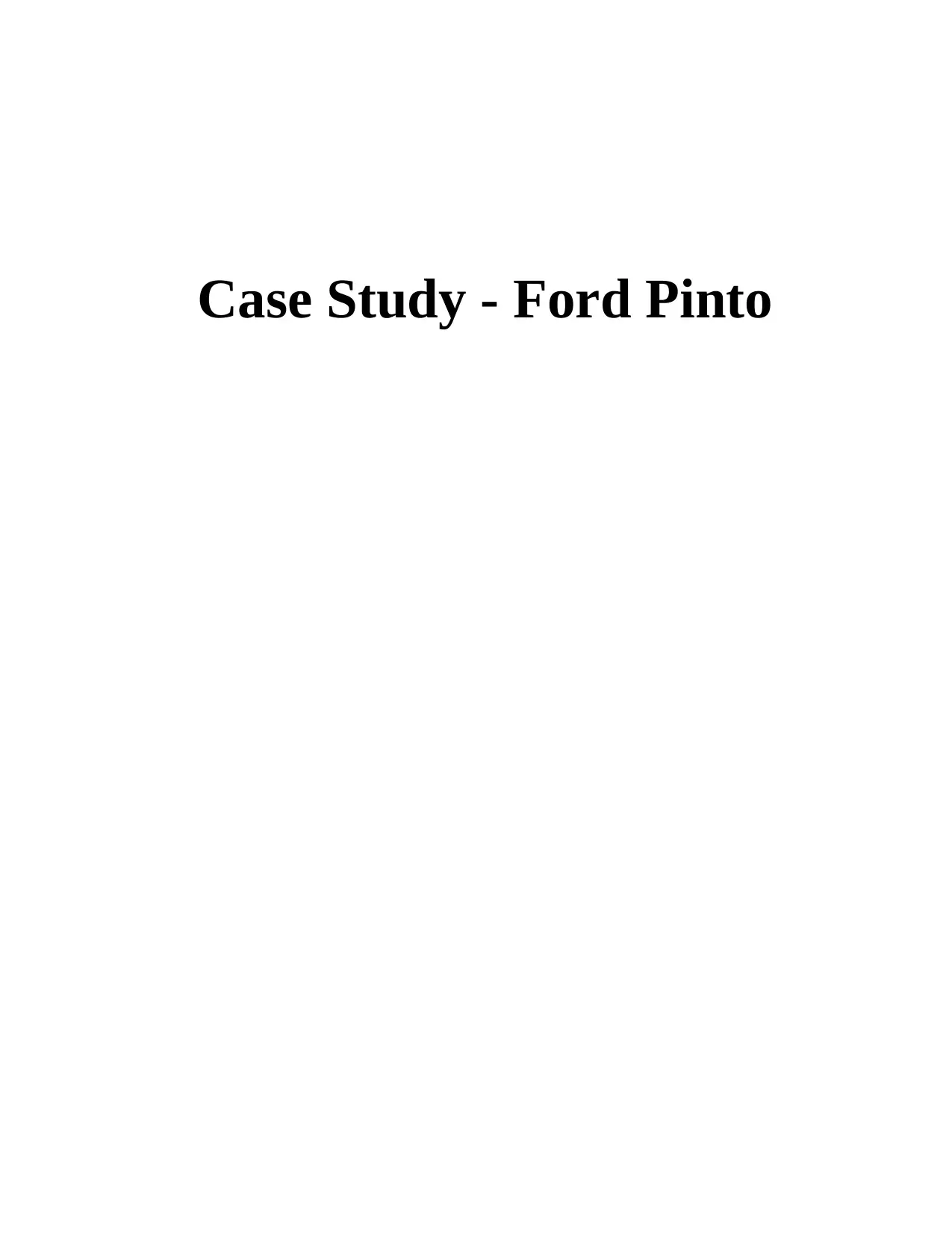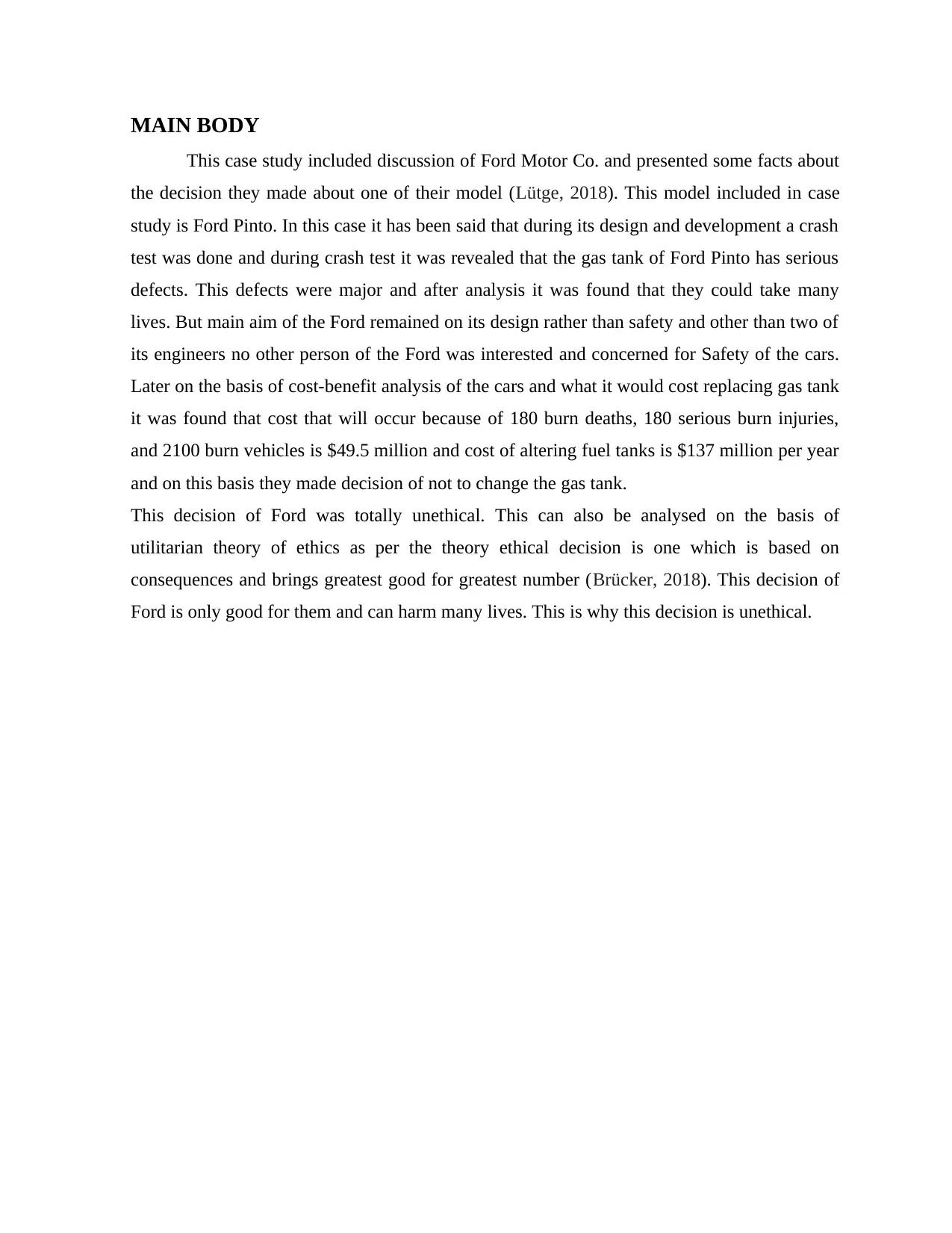Case Study: Ford Pinto - Cost-Benefit Analysis and Ethical Concerns
VerifiedAdded on 2023/01/12
|4
|352
|71
Case Study
AI Summary
The Ford Pinto case study examines the ethical and business implications of Ford's decisions regarding the car's design. The assignment discusses how during crash tests, a serious defect in the gas tank was discovered, leading to potential safety hazards. Despite this, the company prioritized design and cost-effectiveness over safety, performing a cost-benefit analysis that weighed the cost of fixing the defect against potential lawsuits and loss of life. The case study reveals that Ford chose not to change the gas tank design, highlighting an unethical decision based on utilitarian principles, where the potential harm to many lives was disregarded for financial gains. The analysis includes references to relevant literature and provides insights into the ethical considerations of business practices and product safety.
1 out of 4






![[object Object]](/_next/static/media/star-bottom.7253800d.svg)